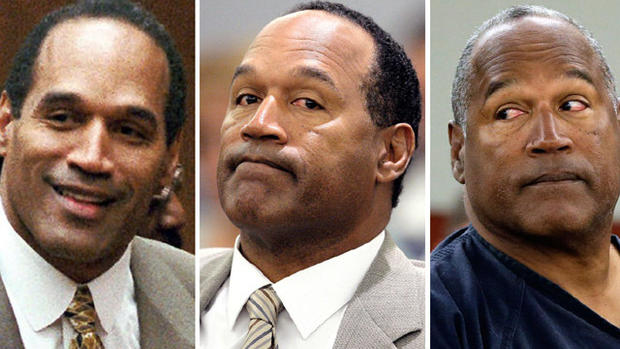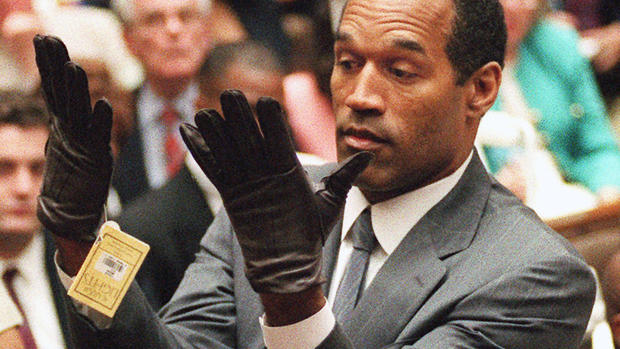Looking back at O.J. Simpson's "Trial of the Century"
NEW YORK -- Perhaps no court case in American history more deserves the oft-used description "Trial of the Century" more than O.J. Simpson's.
For more than a year after Nicole Brown Simpson was found murdered outside her Los Angeles home June 12, 1994, along with Ronald Goldman, the case drew unprecedented national media attention, captivating the country.
Officials said that O.J. Simpson -- the Hall of Fame football player, comedic actor actor and household name -- had stabbed and murdered his ex-wife and her friend in a surprise attack.
After initially agreeing to turn himself in to police on June 17, Simpson instead fled. He held a gun while in a now-notorious white Ford Bronco, driving on Southern California freeways as police cars followed closely behind. The chase was broadcast live and kept millions of Americans riveted to their TV sets, before Simpson eventually surrendered.
The trial's impact on pop culture was undeniable. From Simpson's "dream team" of high-paid legal experts, to the accusations of racial prejudice on the part of Los Angeles Police Officer Mark Fuhrman, to the popularization of cable TV courtroom broadcasts, the case dominated news coverage.
The trial's prosecutors, defense attorneys and witnesses became household names. Watercooler conversations nationwide focused on prosecutors Marcia Clark and Christopher Darden, judge Lance Ito, Simpson's houseguest Kato Kaelin, homicide detective Mark Fuhrman, and Simpson's "dream team" of defense attorneys including legendary lawyer Johnnie Cochran, who coined the famous phrase "It it doesn't fit, you must acquit."
Ultimately, Simpson was acquitted, and reaction to the decision was deeply divided. A CNN poll taken at the time the verdict was issued found 62 percent of white Americans thought Simpson was guilty, while 68 percent of black Americans believed he was innocent.
Though he had won his freedom, Simpson's public image was irreparably damaged. He was subsequently found liable for the killings in civil court and ordered to pay $33.5 million to the families of the victims.
On Sept. 13, 2007, the day the Goldman family won the rights to Simpson's book, "If I Did It," he and a handful of acquaintances raided a Las Vegas hotel room and seized numerous pieces of his sports memorabilia that two men were trying to sell.
Simpson was convicted of kidnapping, armed robbery and other charges and sentenced to nine to 33 years in a Nevada prison.
He will be eligible for parole in three years.

